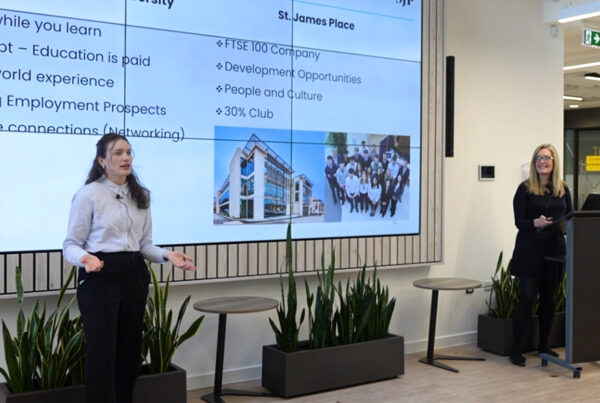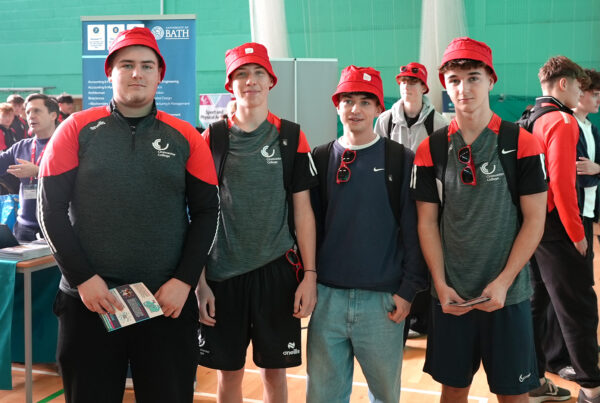Recently, Media and Journalism students at Cirencester College were visited by Lynne Jones who is the Senior Advisor of the BBC Editorial Policy.
Across two hour-long sessions, over 100 students enjoyed a discussion about various topics relating to Lynne’s exciting career in the BBC, from starting as an office assistant in BBC radio, to going on to be in charge of BBC flagship programmes such as The One Show and Crime Watch and using this experience in her current role in Editorial Policy.
Lynne explained the daily duties she takes on in her role such as assessing programme ideas and pitches from different production companies, and even told the students of some ideas that didn’t make it very far as they were not thought suitable for a BBC audience.
The students gained valuable insight into the realities of working in the media sector such as how BBC editorial guidelines work, and how programme makers make the ethical and editorial decisions with the help of Lynne’s department.
Head of Media at Cirencester College and former BBC Producer Nigel Gooing said “Getting a chance to meet people who are working in the media sector is a vital part of preparing the students for their future careers. This session stretched the student’s knowledge about the media industry. It also meant they got to hear from a real insider about the often very difficult ethical and editorial decisions that are made by programme makers every day. Many of the students were fascinated to hear first-hand about Lynne’s career journey, starting out as a BBC Office Assistant to now taking decisions at the highest level within the organisation. We hope that giving students direct access to media professionals in this way will really inspire them as they take their first steps into a career in the creative industries”
For more information on this story please contact chloe.suter@cirencester.ac.uk













